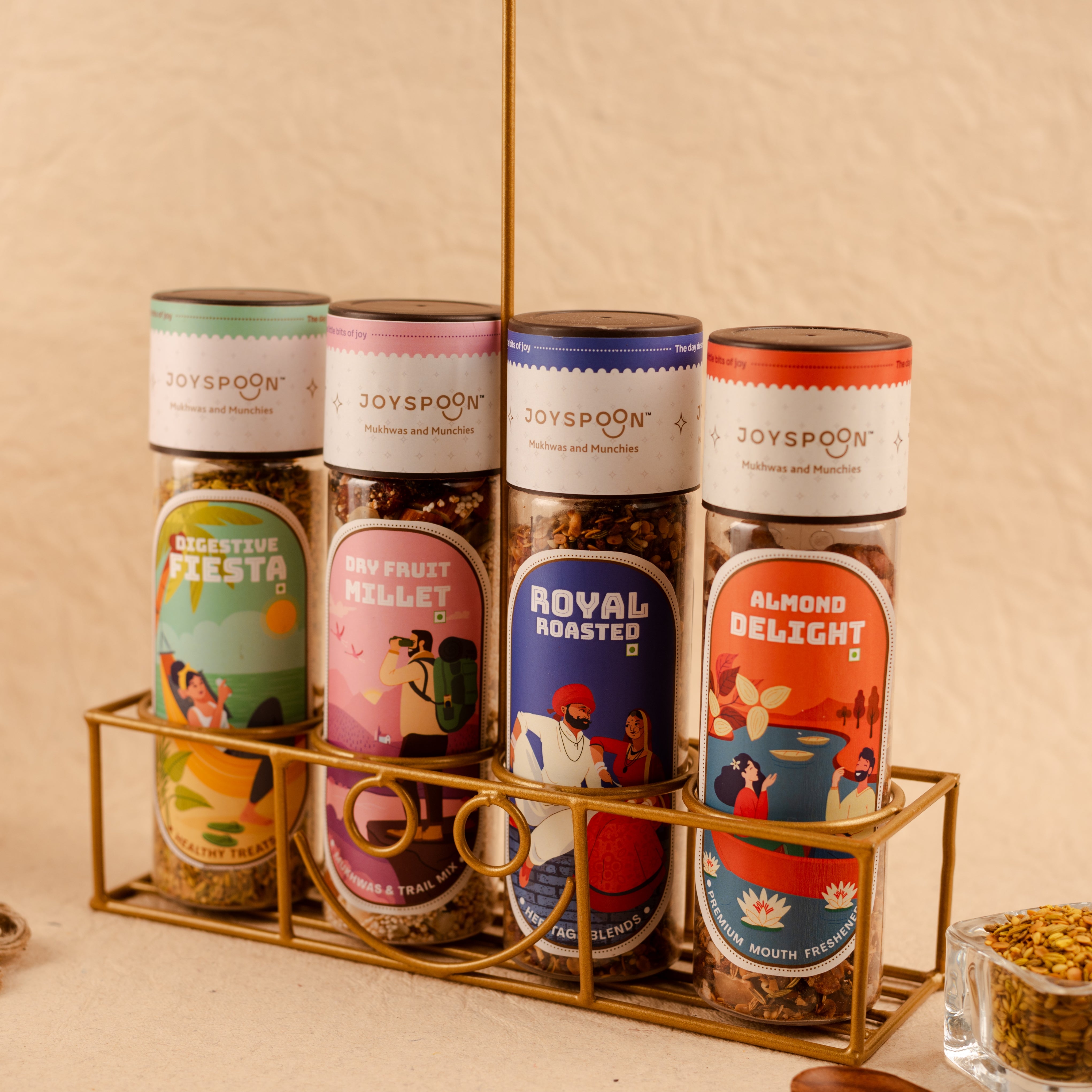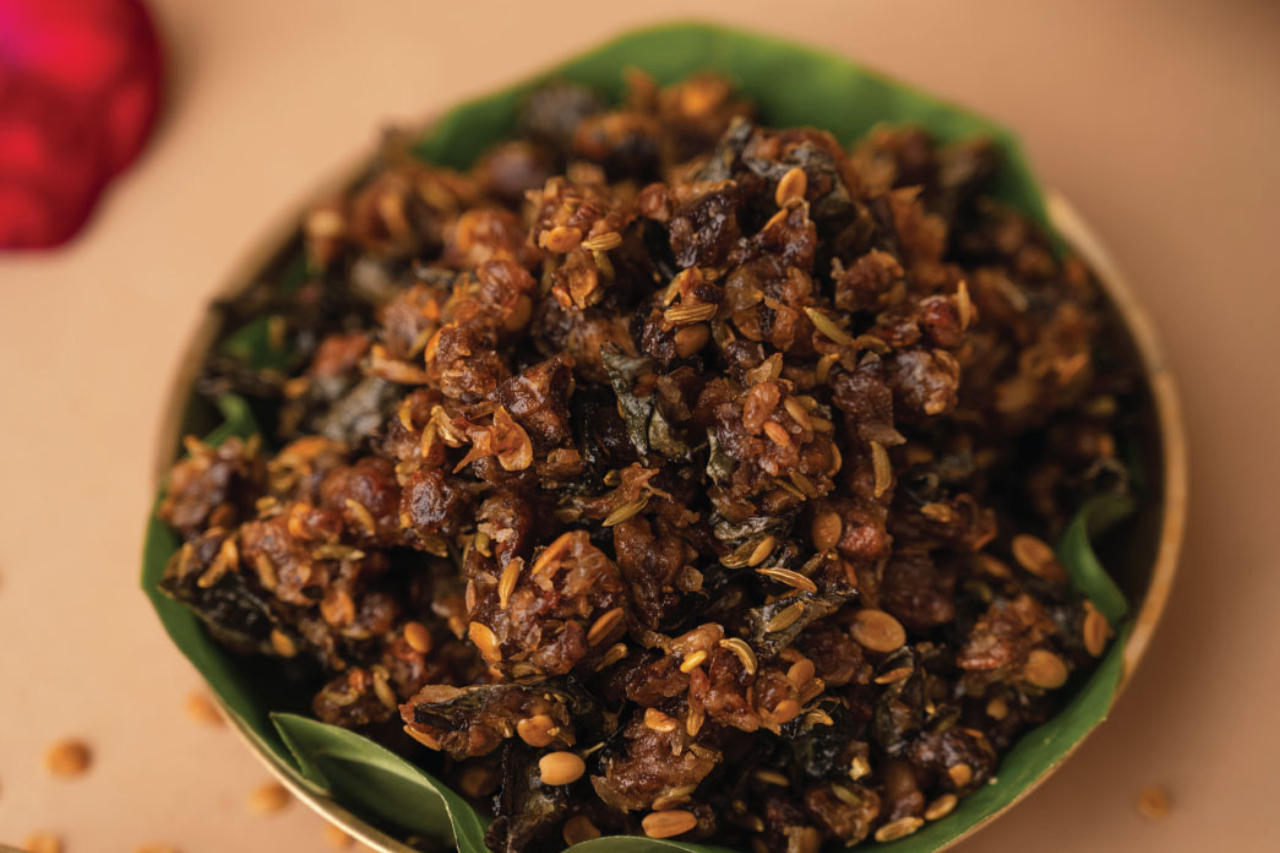Mukhwas, a delightful and aromatic mixture of seeds and spices, is an integral part of Indian culinary culture. Often enjoyed as a post-meal digestive aid and mouth freshener, Mukhwas has a history as rich and varied as the flavors it encompasses. From ancient medicinal practices to modern-day dining rituals, the journey of Mukhwas is a fascinating tale of tradition, health, and hospitality.

Ancient Roots: Ayurvedic Beginnings
The origins of Mukhwas can be traced back to ancient India, deeply intertwined with the principles of Ayurveda, the traditional system of medicine that dates back over 5,000 years. Ayurveda emphasizes the balance of bodily elements and the use of natural remedies to promote health and wellness. Mukhwas, with its blend of seeds, herbs, and spices, was crafted to aid digestion, a key aspect of maintaining overall health according to Ayurvedic practices.
Ingredients commonly found in Mukhwas, such as fennel seeds, sesame seeds, and ajwain, have long been recognized in Ayurveda for their digestive properties. Fennel seeds, for example, are known to alleviate bloating and improve digestion, while ajwain is celebrated for its ability to relieve gas and enhance appetite. The incorporation of these ingredients into Mukhwas not only provided immediate post-meal relief but also contributed to long-term digestive health.

Mukhwas in Regional Traditions
As Mukhwas became popular, it evolved to reflect the diverse culinary landscapes of India. Each region developed its own unique version of Mukhwas, using locally available ingredients and flavors. This regional adaptation is a testament to the versatility and adaptability of Mukhwas.
- Gujarat: In the western state of Gujarat, Mukhwas often features roasted flax seeds and sesame seeds, combined with sugar or jaggery for a sweet touch. The use of flax seeds, rich in omega-3 fatty acids, adds a nutritional dimension to the mix.
- Rajasthan: In Rajasthan, Mukhwas commonly includes anise seeds, dried rose petals, and a variety of spices. The inclusion of rose petals adds a fragrant and floral note, while the spices reflect the bold flavors characteristic of Rajasthani cuisine.
- Maharashtra: Maharashtrian Mukhwas often incorporates dried coconut flakes, fennel seeds, and sugar-coated seeds. The use of coconut adds a tropical flavor and a chewy texture, making it a favorite in this coastal state.
- Bengal: In the eastern state of Bengal, Mukhwas known as “Pan Mukhwas” often includes betel leaves, fennel seeds, and areca nuts. This blend not only freshens the breath but also offers a unique and slightly astringent taste, reminiscent of traditional betel quid.

Cultural Significance
Beyond its digestive benefits, Mukhwas holds a special place in Indian culture and hospitality. Offering Mukhwas to guests after a meal is seen as a gesture of goodwill and warmth. It signifies the host’s attention to detail and their desire to ensure the guest’s comfort and satisfaction.
In many Indian households, Mukhwas is kept in beautifully decorated containers, often made of silver or brass, and placed prominently in the dining area. These containers, sometimes passed down through generations, add a touch of elegance and tradition to the dining experience.
Mukhwas also plays a role in various Indian rituals and celebrations. During weddings, festivals, and other significant events, Mukhwas is often served alongside other traditional sweets and savories. Its presence in these celebrations underscores its importance in the cultural and social fabric of India.

Modern-Day Mukhwas
Today, Mukhwas has evolved to cater to contemporary tastes and dietary preferences while retaining its traditional essence. Modern Mukhwas blends may include a variety of seeds, nuts, dried fruits, and even exotic spices, offering a wide range of flavors and textures.
Conclusion
Mukhwas is much more than a mere mouth freshener; it is a symbol of India’s rich culinary heritage, a testament to ancient wisdom, and a reflection of regional diversity. Its journey from ancient Ayurvedic practices to modern dining tables is a story of tradition, health, and hospitality.
At Joyspoon, we honor this legacy by offering a wide range of premium Mukhwas blends that cater to contemporary tastes while staying true to traditional roots. Our Mukhwas are crafted with care, using the finest ingredients to provide both flavor and health benefits.
Experience the rich history and delightful flavors of Mukhwas with Joyspoon. Visit our website at Joyspoon to explore our extensive range of Mukhwas and mouth fresheners. Whether you’re looking to try something new or stock up on your favorites, Joyspoon has you covered. Enjoy the convenience of having premium Mukhwas delivered right to your doorstep and discover the perfect blend of taste and wellness.











